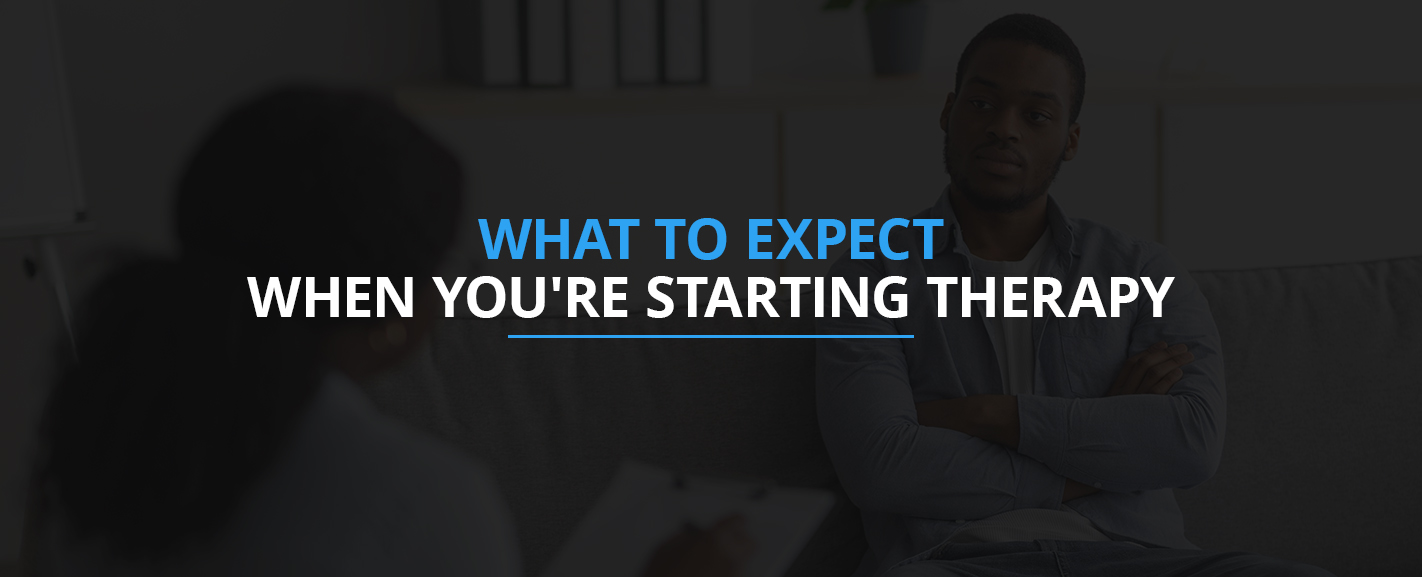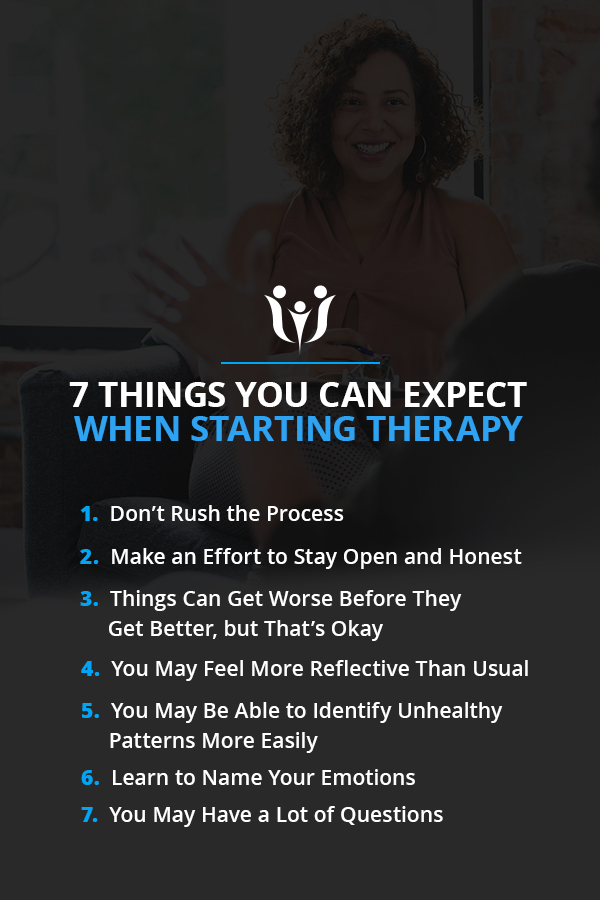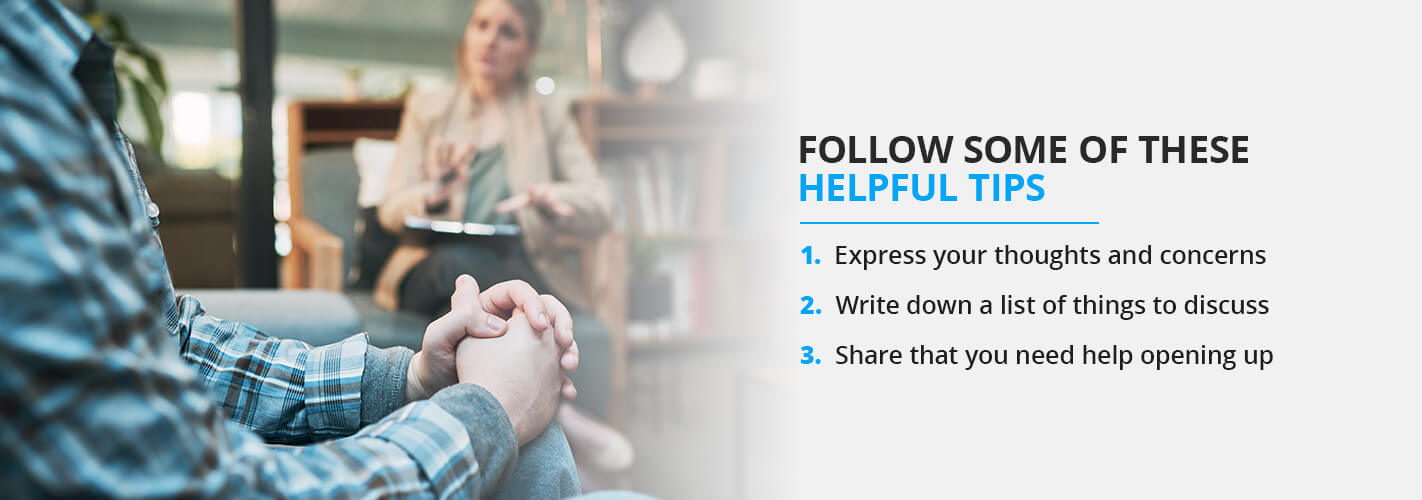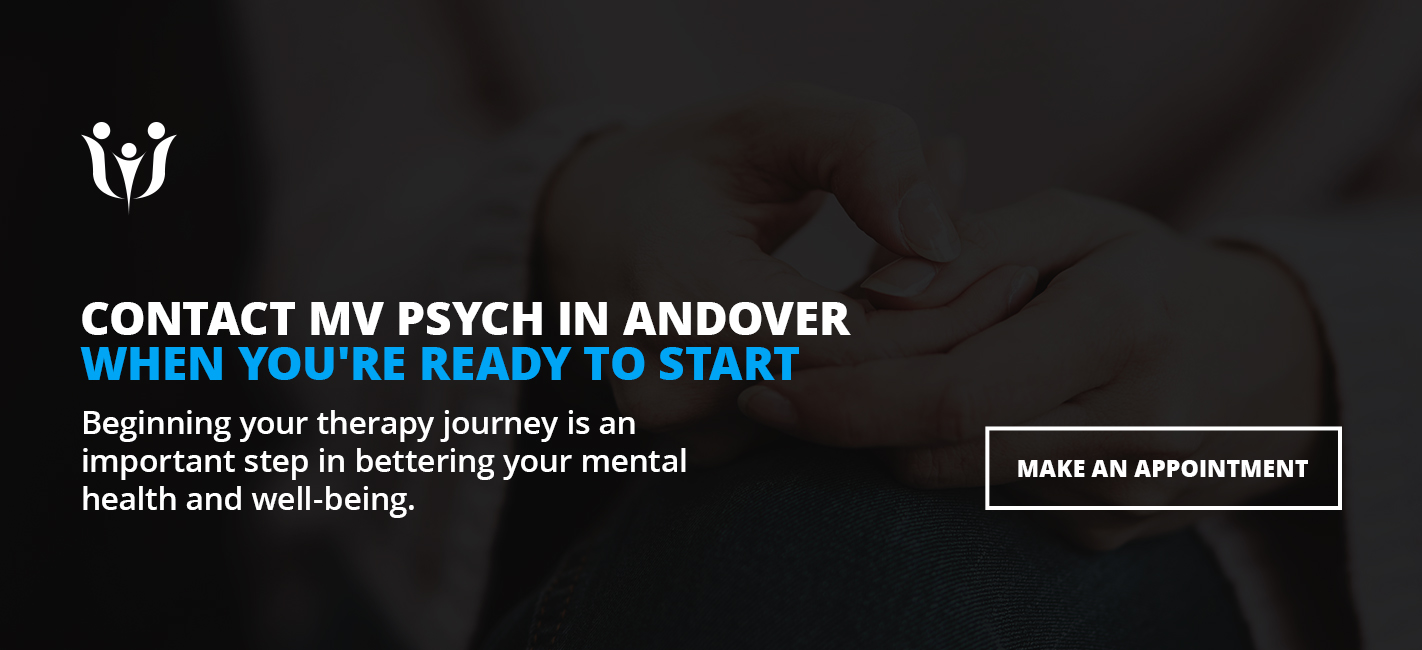How To Start A Therapy Session and What to Expect

Are you wondering how to start therapy or where to start in therapy? Making the decision to start therapy is a big step in bettering your mental health. Scheduling your first appointment and meeting with your therapist for the first time is an important moment. While you may feel a mixture of emotions when you think about starting therapy, it’s helpful to remember that the process may soon become familiar, and you’ll begin to feel more comfortable sitting with a therapist.
New experiences are pivotal, especially deciding to start therapy. This beginner’s guide to starting therapy is a helpful outline of how you can ease any strong emotions you’re associating with beginning therapy. From learning what happens when starting therapy to helpful questions to ask your therapist, this guide is a beneficial resource.
Beginning Therapy- Your First Session
People who have never experienced therapy likely have many questions about the process. Will the therapist be doing most of the talking? How much information should I share? What types of questions will they ask?
The approach and style of your first therapy session can depend on your therapist. How long should a therapy session last? At Merrimack Valley Psychological Associates, you can expect your sessions to be 53 minutes long.
Online and in-person appointments have a similar structure. To help you learn how to prepare for your first therapy session, check out this timeline of how your experience will flow during your first appointment:
- Waiting for the appointment: Before your appointment begins, you’ll want to prepare while you wait so you feel confident and ready for your meeting. You should complete all your paperwork beforehand and write down any questions or thoughts you want to talk about during your therapy session. You can also grab a glass of water, eat a quick snack or make your space comfortable before you start so you’re 100% ready to introduce yourself to your therapist.
- Introduce yourself: After the therapist calls you back for your appointment, you’ll spend the beginning part of your session getting to know each other. Your therapist will share some information about themselves, and you can tell them about your interests, current job, school or anything to start developing a relationship. You don’t need to dive into anything too deep when you first sit down. Topics like your hobbies or favorite movies are great to build upon during introductions.
- Explain why you scheduled the appointment: After you introduce yourselves and learn a little bit about each other, your therapist will likely ask you why you decided to seek therapy. They’ll want to know what kinds of problems you would like to address during your therapy sessions and learn more about what you need from the appointments. Your therapist will also want to know if you’ve been to therapy before or how you’ve been dealing with your problems. This information can help them structure their therapy sessions and provide a successful first therapy session.
- Ask questions: After your therapist learns a little bit about you and the main reasons you want therapy, your therapist will likely ask you other questions. These questions can help them get to know you better or help them determine the best ways to approach treatment. These questions can dive into more about your interests and life or aim more toward your problems and history about your mental health.
Common Questions You May Be Asked
During your first therapy session, your therapist may ask you the following questions:
- What made you consider starting therapy?
- How long have you been experiencing these issues?
- Is this your first time in therapy?
- Do you have any current coping strategies?
- Who are some people you rely on for support?
- Do you have a history of self-harm?
- Do you have a history of suicidal ideation?
- What do you expect to get from starting therapy?
- Is there a history of mental health problems in your family?
Your first session will be unique in the way your therapist will gain as much information from you as possible to adequately provide your care. Their questions are meant to gauge how you’re currently handling your issues, how you’re feeling, and more signs for how they can help improve your mental health. Your sessions after the first one will transform from surface-level questions to suggesting different techniques and coping strategies to help handle various mental health problems.
Common Questions You May Want to Ask Your Clinician
One of the best things you can do to feel more comfortable at your first therapy session and learn more about what future sessions will look like is asking your therapist questions. You can ask your therapist the following first therapy session questions and more:
- How long have you been a clinician?
- What techniques or approaches do you use? Can you explain them?
- Do you have experience working with patients that have been through similar difficulties like I have? How much experience do you have working with these struggles?
- How long will my treatment take?
- What are ways I can prepare for my sessions?
- Do you provide in-person, teletherapy or both?
- Is there anything I should do in-between our sessions?
No questions are right or wrong when you’re speaking with your therapist. Getting comfortable in this new setting is important, and learning more about the therapy process and how your sessions will run can help you know what to expect from first therapy sessions and follow-up sessions. You can also use this time to further explain your goals for therapy and learn how your therapist will try and meet those expectations.
7 Things You Can Expect When Starting Therapy
You’ve done your research on the best therapist clinic in your area, you’ve written down all of the questions you plan to ask during your first session and you know what to expect out of your first session, so you’re all ready for therapy, right? You can feel comfortable with the technical process of therapy but still wonder how these sessions will impact your mental health and everyday life. Learning how to start going to therapy and what you can expect can help you out in the long run.
Therapy sessions may impact how you handle certain situations in your life and allow you to see things through a different lens. It’s helpful to have an idea of how therapy can help individuals and what changes you may notice after you start completing more sessions.
Everyone’s journey with therapy is individual and different. You can expect a few things to occur during the process that will show that the sessions are working as intended. Check out these seven things you can expect from therapy and ways to make the process more helpful.
1. Don’t Rush the Process
Before your first appointment, and your other following appointments, be sure to clear some space in your day around the sessions to think about what you want to talk to your therapist about. After leaving your appointment, be sure to process your emotions and the other things you accomplished during your session. Sometimes rushing to a session can leave you feeling unprepared or you’ll leave realizing you wish you had some more time to process everything before you head to another commitment.
Sometimes it’s nice to have a few extra minutes to yourself before and after your session to sit and relax, read a book, look over your therapy notebook, listen to your favorite song or anything else that makes you happy or relaxed.
The timeframe before and after your sessions doesn’t have to be incredibly long. Even an extra ten minutes before and after your session reserved for yourself and your thoughts can help you tackle the rest of your day.
2. Make an Effort to Stay Open and Honest
Trusting a new person right from the start isn’t easy for everyone, even with a relationship between a therapist and a patient. Every person will feel a comfortable connection with their therapist at a different time, but it’s helpful to remember that your bond can grow with every session you accomplish. While you don’t have to share everything at first, it’s beneficial to always try to be open and honest with your therapist.
You can find ways to make yourself more comfortable sharing information with your therapist. Reminding yourself that therapy is a safe place that will help you learn and grow, your therapist is not there to judge you but to help you and you’re sessions are in place to guide you to a happier and healthier you are all excellent ideas to keep in mind during your sessions.
If you’re still not sure how you can be more honest with your therapist, follow some of these helpful tips:
- Express your thoughts and concerns: Explain to your therapist that you’re wary about sharing some personal information with them. You can ask them to elaborate on their confidentiality policy and the instances they can share any information that you tell them.
- Write down a list of things to discuss: Creating a list of things you want to talk about can help you cover all of your questions or concerns during your appointment.
- Share that you need help opening up: Tell your therapist exactly how you feel about being honest and sharing information during your sessions. They can help guide you with questions and prompts to make opening up to them an easier process.
3. Things Can Get Worse Before They Get Better, but That’s Okay
A common occurrence that patients experience when attending therapy sessions is feeling worse before feeling better as they complete therapy sessions. This feeling is normal because this may be the first time you’re exploring deep into the issues you’re facing. A therapist will guide you through these problems and try to work through any barriers you’ve set up to protect yourself from the things that are troubling you. While you may feel worse at first because you’re finally tackling the problems that caused you to seek therapy, these feelings should dissipate and lead you to feel better with more sessions.
4. You May Feel More Reflective Than Usual
Committing an hour of your time to talk about your emotions, problems and other aspects of your life is a lot of time talking about yourself. Many people aren’t used to taking this deep dive into their thoughts and hearing helpful advice from a professional, and this can allow you to become more reflective and think deeper than you used to. Following open-ended questions during your therapy sessions can help you ask yourself more profound questions in your everyday life. You may begin to notice you are developing more self-awareness. You might also start to bring these actions into your relationships, decisions and conversations.
5. You May Be Able to Identify Unhealthy Patterns More Easily
Participating in therapy can help you recognize toxic or unhealthy patterns easier than before you started sessions. A professional therapist can help describe and identify what toxic behaviors look like and distinguish if the people you surround yourself with are expressing harmful behaviors.
Harmful behaviors are often passed down through close relationships like family members, romantic relationships or close friendships. When you’re more conscious about these types of behaviors, you’re able to identify them in yourself and work towards adapting healthy and beneficial behaviors.
6. Learn to Name Your Emotions
Before therapy, picking out your emotions and describing them might not be a task you’re used to completing. A therapist can help you name certain emotions and expand your vocabulary regarding your feelings. Pinpointing your emotions and naming them is a common goal in the process of therapy. Regardless of the type of therapy you schedule or the therapist you choose, they will likely help you put a name to your emotions. The more sessions you attend and the more you learn about your feelings, the more you will begin to understand about your emotions.
7. You May Have a Lot of Questions
It’s normal to have questions when starting therapy. Discussing the root of your emotions and diving into problems that have impacted your life can lead to some revealing conversations with your therapist. Thinking about the moments and people in your life that have shaped you into the person you are, you may start leaving your therapy sessions with more questions than answers.
Therapy can unearth questions you never thought you’d ask yourself. While you’re continuing to grow through these sessions and learn more about your emotions, it’s helpful to consider that it may take some time to find the answers to all of your new questions.
Starting therapy for the first time is not a walk in the park. Remember that it takes time to work through big issues, and you have the time to discuss any questions or concerns you have with your therapist.
Contact MV Psych in Andover When You’re Ready to Start
Beginning your therapy journey is an important step in bettering your mental health and well-being. Knowing the general idea of how the process works and what you can expect can help make therapy more approachable.
If you’re ready to start therapy, contact the clinicians at Merrimack Valley Psychological Associates today. Our team can help answer any questions about starting therapy you may have and explain the services we offer.
Reviewed By
Dr. David Rainen, PsyD.
I am a licensed clinical psychologist with an extensive background treating a variety of different ages, situations, emotional and mental health disorders in individuals and their families. As part of my 10 year professional and training career in psychology, I have developed and refined my skills and approaches through my work in a variety of diverse settings including: hospitals, community outpatient facilities, college counseling centers, secure and unsecure inpatient/residential treatment programs, and therapeutic day schools.





